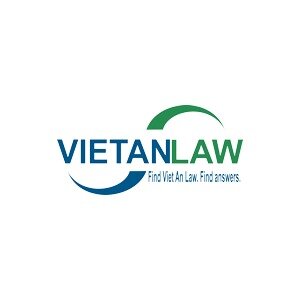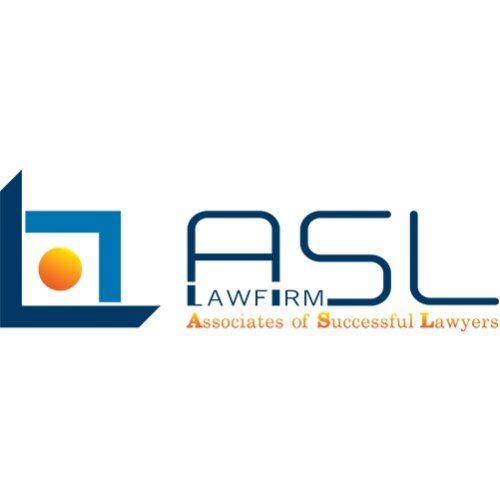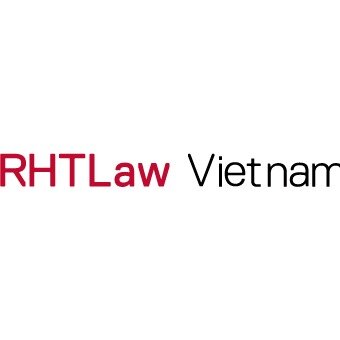Best Climate Change Law Lawyers in Ho Chi Minh City
Share your needs with us, get contacted by law firms.
Free. Takes 2 min.
List of the best lawyers in Ho Chi Minh City, Vietnam
About Climate Change Law in Ho Chi Minh City, Vietnam
Climate Change Law in Ho Chi Minh City, Vietnam encompasses the legal frameworks and regulations designed to address the impacts of climate change. As Vietnam’s largest economic hub, Ho Chi Minh City faces unique challenges due to its dense population, rapid urbanization, and susceptibility to flooding, sea level rise, and other climate-related issues. The city, together with the central government, has been implementing policies and laws to mitigate greenhouse gas emissions, promote sustainable development, and adapt to the environmental changes brought by a warming climate. These legal measures involve land use regulation, environmental protection laws, renewable energy policies, and international commitments on climate action.
Why You May Need a Lawyer
Navigating Climate Change Law can be complex, and individuals or businesses in Ho Chi Minh City may require legal assistance in several situations. Common scenarios include:
- Understanding regulatory requirements for new urban developments or construction projects in climate-sensitive areas
- Ensuring compliance with emission standards or environmental impact assessment (EIA) obligations
- Seeking approvals or permits for renewable energy installations such as solar panels or green buildings
- Responding to government enforcement, inspections, or potential fines related to climate change regulations
- Engaging in climate-related disputes, such as damage claims linked to environmental harm or flooding
- Participating in climate adaptation or mitigation projects requiring contracts or joint ventures
- Interpreting and benefiting from government incentive programs or subsidies for sustainable initiatives
A lawyer specializing in Climate Change Law can provide tailored legal advice, help with negotiations with authorities, and represent your interests in administrative or judicial proceedings.
Local Laws Overview
Vietnam’s approach to climate change is governed by national and municipal legislation. In Ho Chi Minh City, several key legal sources shape Climate Change Law:
- Law on Environmental Protection (2020): This national law sets out principles for environmental management, pollution control, and climate change response. It mandates environmental impact assessments, green technology adoption, and provides for climate adaptation plans.
- National Strategy on Climate Change: Updated investments and targets for carbon reduction, climate adaptation, and disaster resilience, which are locally implemented in Ho Chi Minh City.
- Renewable Energy Policies: Regulations supporting solar, wind, and biomass projects, including investment incentives and land use stipulations.
- Construction and Urban Planning Laws: Local planning policies require consideration of climate risk, flood mitigation, and sustainable development standards.
- International Frameworks: Vietnam is a party to the Paris Agreement and other climate treaties. Local laws increasingly reflect these international obligations, and Ho Chi Minh City is often a pilot center for climate resilience strategies.
Regulatory bodies such as the Ho Chi Minh City Department of Natural Resources and Environment oversee compliance and enforce climate-related laws, while sectoral ministries issue relevant guidelines.
Frequently Asked Questions
What is the main law regulating climate change activities in Ho Chi Minh City?
The principal law is the Law on Environmental Protection (2020) which, together with relevant decrees and city-level policies, regulates climate change mitigation, pollution control, and adaptation activities.
Do I need special permits for renewable energy projects in Ho Chi Minh City?
Yes. Renewable energy projects such as solar installations or wind farms require permits and compliance with planning, environmental impact assessments, and construction regulations under Vietnamese law.
How does Ho Chi Minh City address flood risks linked to climate change?
The city has adopted urban planning measures, zoning restrictions, and dike construction projects. New developments must comply with flood resilience guidelines and drainage requirements.
Are there incentives for businesses or homeowners to adopt green technology?
There are government incentives, including tax breaks, loans, and subsidies for environmentally friendly projects, energy-efficient buildings, and renewable energy systems. Eligibility and procedures vary, so legal advice is helpful.
What role do environmental impact assessments (EIAs) play in climate law?
EIAs are mandatory for many construction, industrial, and infrastructure projects. These assessments evaluate climate risk, emissions, and adaptation measures before a project can proceed.
Can I challenge a project that risks environmental harm due to climate change?
Vietnamese law allows affected individuals, communities, or organizations to submit complaints or lawsuits regarding projects that may cause environmental or climate-related harm. Legal guidance is recommended for such cases.
What penalties exist for violating climate-related regulations in Ho Chi Minh City?
Penalties include fines, withdrawal of permits, suspension of business operations, and orders to implement corrective actions. Serious violations might involve criminal liability under environmental law.
How does international climate law affect local businesses in Ho Chi Minh City?
Vietnam’s commitments under treaties like the Paris Agreement influence local regulations, especially for sectors like manufacturing and energy, mandating reduced emissions and sustainability reporting.
Are there specific requirements for coastal or riverfront developments in the city?
Yes. Such projects must comply with stricter flood risk assessments, sustainable design mandates, and sometimes buffer zones to address projected sea level rise and extreme weather events.
How can a lawyer help if I face a dispute regarding climate law compliance?
A climate law specialist can represent you in negotiations, administrative hearings, or court proceedings, help interpret regulations, and protect your interests by preparing documentation and legal defenses.
Additional Resources
If you are seeking information or assistance regarding Climate Change Law in Ho Chi Minh City, consider the following resources:
- Ho Chi Minh City Department of Natural Resources and Environment: Oversees environmental management, permits, and enforcement of climate-related regulations.
- Vietnam Ministry of Natural Resources and Environment (MONRE): Sets nationwide climate and environmental policy, with guidance applicable to local projects.
- Vietnam Environment Administration: Provides documentation, publications, and guidance on climate adaptation and green development.
- NGOs such as the Vietnam Green Building Council and WWF-Vietnam: Offer expertise in sustainability, advocacy, and project support.
- Legal aid centers and local bar associations in Ho Chi Minh City: Offer lawyer referrals for climate law issues.
These organizations can provide legal guidance, technical information, and contacts for further legal representation.
Next Steps
If you believe you require legal help regarding climate change regulations or a related dispute in Ho Chi Minh City, take the following steps:
- Gather all relevant documents relating to your project, permit, compliance inquiries, or disputes
- Contact local agencies or environmental authorities for specific regulatory guidance
- Consult with a lawyer experienced in Climate Change Law to discuss your situation, possible risks, and legal solutions
- Monitor any official deadlines for regulatory submissions or legal responses
- If necessary, consider mediation, administrative complaint procedures, or litigation with professional legal representation
An experienced climate law lawyer can clarify your obligations, protect your rights, and help you navigate the evolving legal landscape of climate change in Ho Chi Minh City.
Lawzana helps you find the best lawyers and law firms in Ho Chi Minh City through a curated and pre-screened list of qualified legal professionals. Our platform offers rankings and detailed profiles of attorneys and law firms, allowing you to compare based on practice areas, including Climate Change Law, experience, and client feedback.
Each profile includes a description of the firm's areas of practice, client reviews, team members and partners, year of establishment, spoken languages, office locations, contact information, social media presence, and any published articles or resources. Most firms on our platform speak English and are experienced in both local and international legal matters.
Get a quote from top-rated law firms in Ho Chi Minh City, Vietnam — quickly, securely, and without unnecessary hassle.
Disclaimer:
The information provided on this page is for general informational purposes only and does not constitute legal advice. While we strive to ensure the accuracy and relevance of the content, legal information may change over time, and interpretations of the law can vary. You should always consult with a qualified legal professional for advice specific to your situation.
We disclaim all liability for actions taken or not taken based on the content of this page. If you believe any information is incorrect or outdated, please contact us, and we will review and update it where appropriate.

















